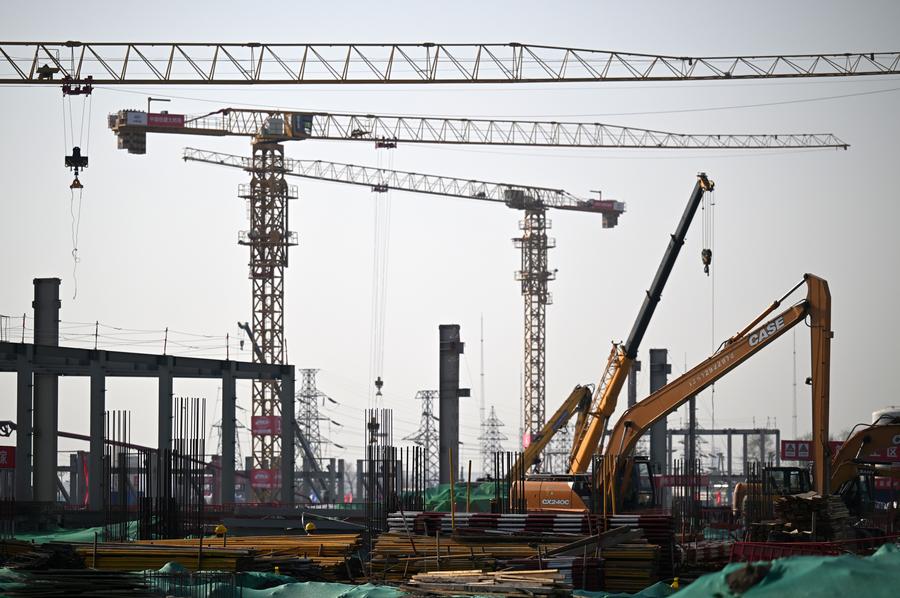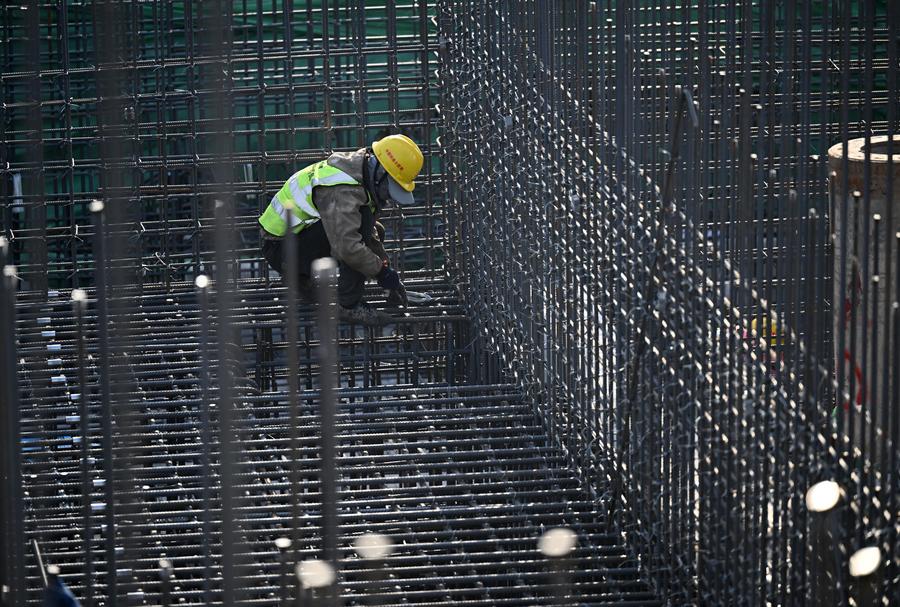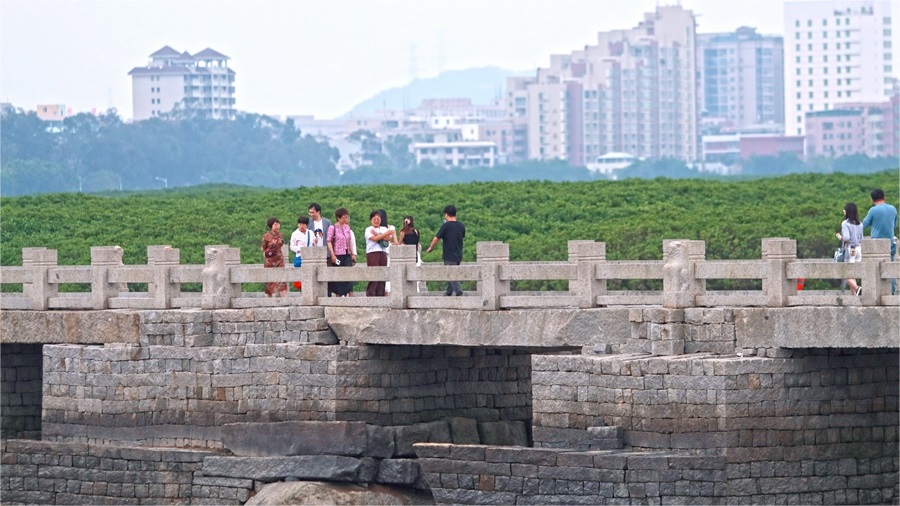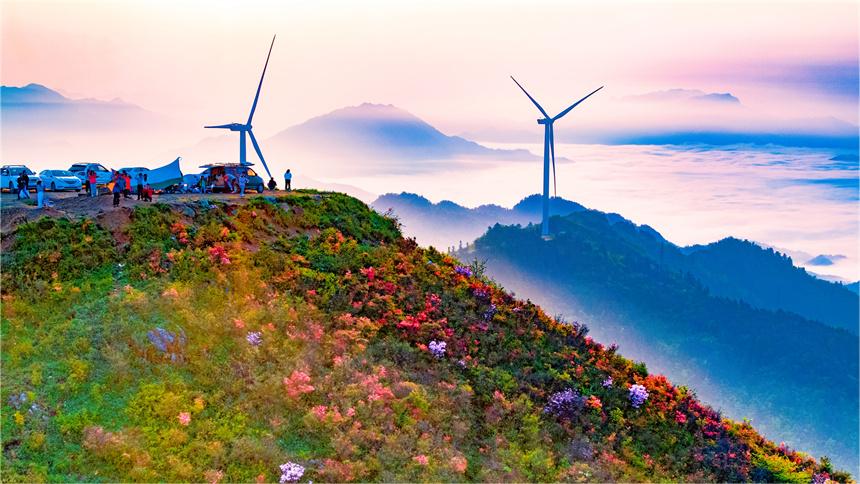Airbus' second final assembly line in China: What does it mean for China and Europe?

Workers work at the construction site of the 2nd Airbus Tianjin A320 Family Final Assembly Line Project in Tianjin, north China, March 31, 2024. (Xinhua/Zhao Zishuo)
TIANJIN, May 6 (Xinhua) -- In the midst of machinery roaring and sparks flying, work is progressing at full speed at the construction site of the second project of the Airbus A320 Family Final Assembly Line Asia (FALA) in north China's Tianjin Municipality.
The project is expected to finish construction and start production by the end of 2025, according to the European aircraft manufacturer Airbus.
In April 2023, the Tianjin municipal government, the Aviation Industry Corporation of China (AVIC) and Airbus signed a framework agreement for the second FALA project, which aims to further expand the assembly capacity for its A320 family in China.
In just one year, the agreement has yielded remarkable results, from the initial planning and design to the groundbreaking ceremony in late September last year, and then to the completion of the main FALA building's foundation in late March this year.
"The Tianjin FALA is key to Airbus' global industrial strategy. Expanding with a second line will help us create greater flexibility within a fragile ecosystem to meet broader market demand worldwide," said Juan Tubio, general manager of Airbus (Tianjin) Final Assembly Co., Ltd.
"The stable and reliable assembly line, high-quality surrounding infrastructure, and resilient supply chain have left us feeling very satisfied with the ecosystem here, as well as our Chinese partners and suppliers," Tubio said.

Workers work at the construction site of the 2nd Airbus Tianjin A320 Family Final Assembly Line Project in Tianjin, north China, March 31, 2024. (Xinhua/Zhao Zishuo)
The second FALA project consists of 13 individual buildings, including the final assembly building and the paint hangar. Once the construction is completed, the Tianjin base will have two single-aisle aircraft production lines and one double-aisle aircraft completion center.
Tubio noted that approximately 100 new employees are expected to join the project in 2024, with 90 percent of them being Chinese nationals.
"The implementation of the second FALA project means that Airbus' aircraft production capacity in the Tianjin Port Free Trade Zone will double in the future. We have built the foundation to further participate in international industrial chain cooperation and promote the implementation of more supporting projects," said Yang Lin, head of the aviation industry development bureau of Tianjin Port Free Trade Zone.
In September 2008, Airbus' first civil aircraft production line outside Europe began operations in Tianjin, giving rise to a series of supply chain ecosystems.
AVIC Xi'an Aircraft Industry Group has built a wing assembly plant adjacent to Airbus' Tianjin FALA. The wings that are assembled and tested here can be directly delivered to the FALA, saving at least 60 days for the supply chain compared to the previous transportation of the wings by sea from Britain.

A worker works at the construction site of the 2nd Airbus Tianjin A320 Family Final Assembly Line Project in Tianjin, north China, March 31, 2024. (Xinhua/Zhao Zishuo)
Goodrich Aerospace Technologies (Tianjin) Co., Ltd., a wholly-owned subsidiary of Collins Aerospace from the United States, has established a composite component manufacturing facility and an A320neo podding center in the Tianjin Free Trade Zone. Safran Nacelles has also launched a new integration center in Tianjin.
The local-for-local collaboration helps Airbus reduce the cycle times and improve sustainability, Tubio said. He added that Airbus is evaluating the configuration of the coming second line to establish a highly efficient, competitive, and sustainable ecosystem, which will create more cooperation opportunities for China's aviation industry and suppliers.
Today, Airbus has approximately 19,000 suppliers in more than 90 countries and regions. More than 200 suppliers in China support civil aircraft projects, and this number is steadily increasing. According to Airbus, all current Airbus civil aircraft models include components from Chinese companies.
Christoph Schrempp, general manager of Airbus (Tianjin) Delivery Center, said with the completion of the second FALA project, Airbus will be more capable of continuously delivering aircraft to global customers and have greater production flexibility.
Tubio said that Airbus has transferred a group of colleagues from the European production site to help with the implementation of the second FALA project in Tianjin and the recent implementation of visa-free policies has significantly facilitated travel between China and Europe.
George Xu, executive vice president of Airbus and CEO of Airbus China, believes that cooperation is an eternal theme in today's world. The aviation industry, highly internationalized, fosters global cultural exchange, business interaction and personal connections.
Taking the second FALA in China as a flagship, Airbus hopes to continue deepening cooperation and investment with China, deliver win-win results for all parties involved, and drive the global aviation industry and sustainable development on a global scale together with partners, said Xu.
Photos
Related Stories
- Xi says China regards Europe as important dimension of its foreign policy
- Xi says China regards Europe as important partner in achieving Chinese modernization
- China and Europe cooperate for water security in the future
- China's Erenhot port handles 1,000 China-Europe freight trains within year
- China-EU GI agreement fosters greater stability in bilateral economic ties: CEATEC
- China-Europe freight train services see robust expansion in Q1
Copyright © 2024 People's Daily Online. All Rights Reserved.









